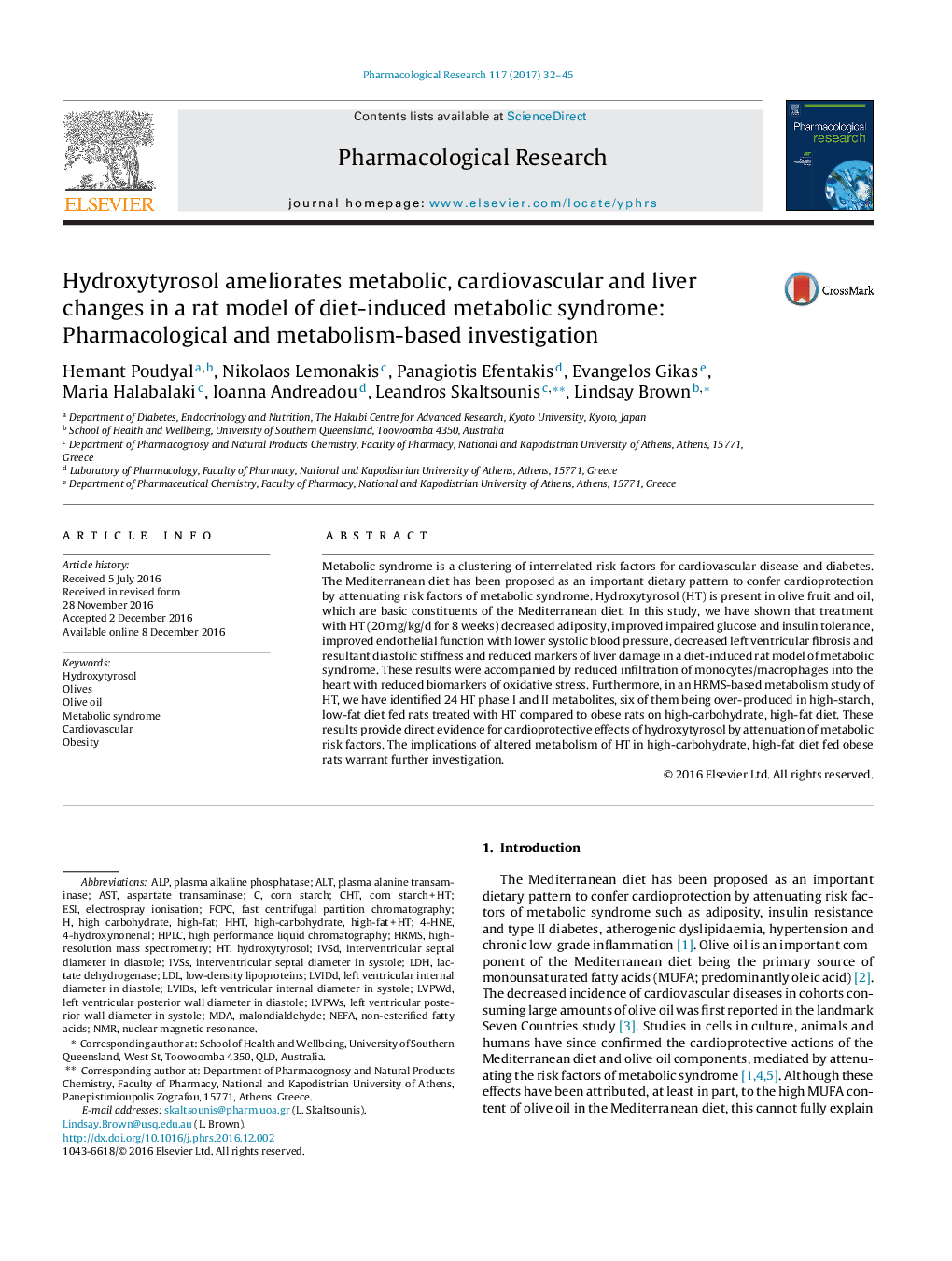| Article ID | Journal | Published Year | Pages | File Type |
|---|---|---|---|---|
| 5557402 | Pharmacological Research | 2017 | 14 Pages |
Metabolic syndrome is a clustering of interrelated risk factors for cardiovascular disease and diabetes. The Mediterranean diet has been proposed as an important dietary pattern to confer cardioprotection by attenuating risk factors of metabolic syndrome. Hydroxytyrosol (HT) is present in olive fruit and oil, which are basic constituents of the Mediterranean diet. In this study, we have shown that treatment with HT (20Â mg/kg/d for 8 weeks) decreased adiposity, improved impaired glucose and insulin tolerance, improved endothelial function with lower systolic blood pressure, decreased left ventricular fibrosis and resultant diastolic stiffness and reduced markers of liver damage in a diet-induced rat model of metabolic syndrome. These results were accompanied by reduced infiltration of monocytes/macrophages into the heart with reduced biomarkers of oxidative stress. Furthermore, in an HRMS-based metabolism study of HT, we have identified 24 HT phase I and II metabolites, six of them being over-produced in high-starch, low-fat diet fed rats treated with HT compared to obese rats on high-carbohydrate, high-fat diet. These results provide direct evidence for cardioprotective effects of hydroxytyrosol by attenuation of metabolic risk factors. The implications of altered metabolism of HT in high-carbohydrate, high-fat diet fed obese rats warrant further investigation.
Graphical abstractDownload high-res image (224KB)Download full-size image
